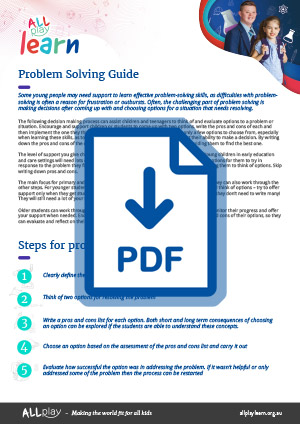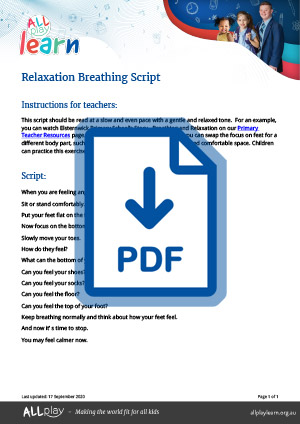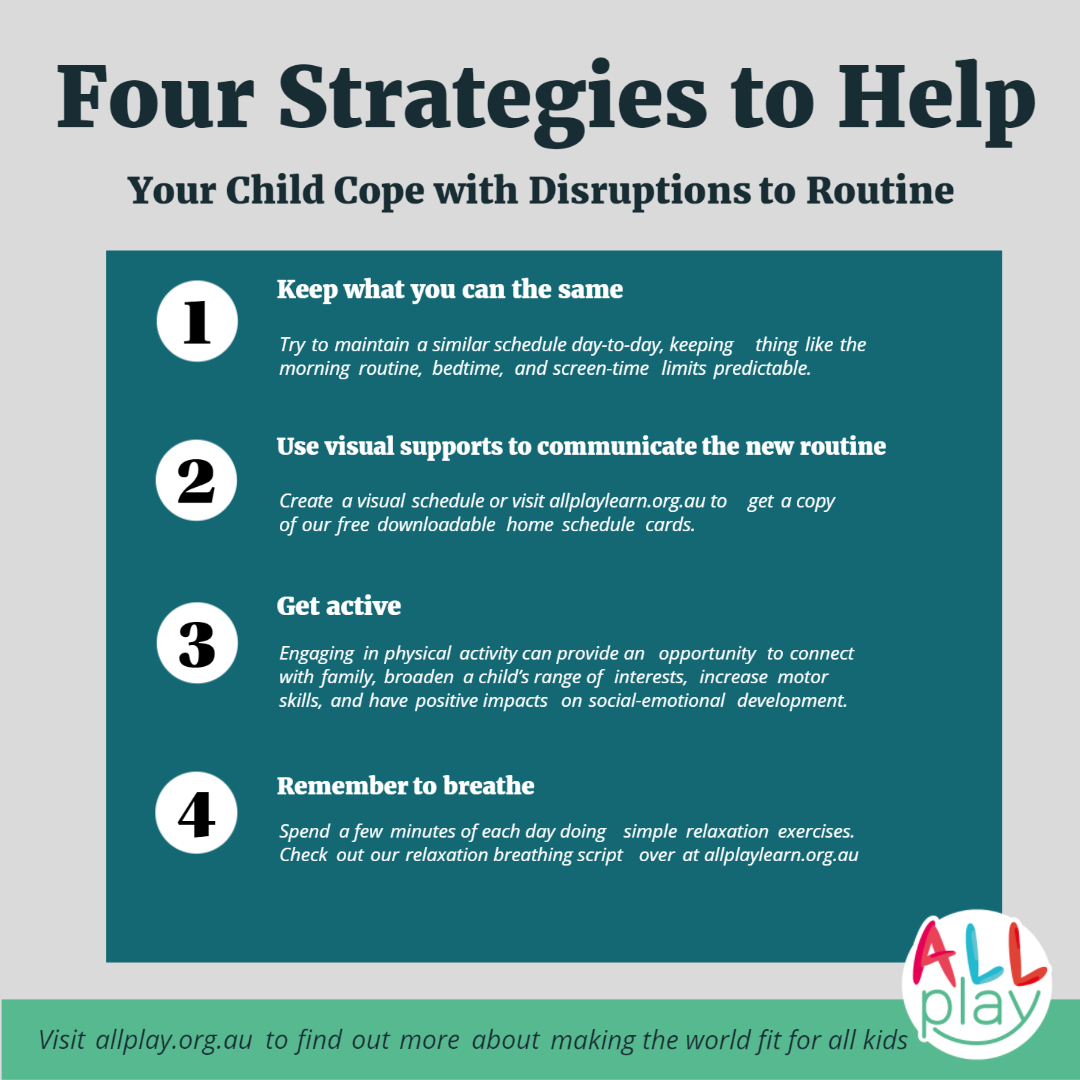Key Protective Factors
On this page:
- Exercise
- Social connections
- Positive teacher-student relationships
- Fun and relaxing activities
- Routine
What are some key protective factors for student mental health and wellbeing?
Research has identified a range of different factors that can support resilience and wellbeing in students during challenging times. Below are a number of different areas where school supports can have a positive impact.

Exercise
Staying active can help students manage feelings of stress and supports their emotional wellbeing. Taking the time to head outside for a walk or some form of exercise each day will have positive impacts on their emotions and behaviour. Time outdoors may also be a great time to practice mindfulness.
For strategies to help a student with a disability or developmental challenge to stay active visit AllPlay Dance and AllPlay Footy.

Positive teacher-student relationships
Research has consistently shown that having warm, respectful and constructive relationships can help students thrive when faced with adversities (including family financial stress, health challenges, and trauma). Your relationship with students can make a big difference, no matter what a student might be facing during this time. Providing positive affirmations and setting boundaries using a friendly tone can help students feel safe during this time.
Consider how you can help students with neurodevelopmental disabilities or challenges with learning to identify, express and regulate their emotions (AllPlay Learn emotion cards and strategies can help with this). You could also practice mindfulness or relaxation breathing together. Experiencing difficulties when trying to solve a problem can often cause frustration or outbursts. Our problem-solving guide for students is a great tool for helping students to understand their difficulties whilst brainstorming potential solutions.

Fun and relaxing activities
During times of stress, it is critical for students to have periods in the day where they can engage in relaxing or enjoyable activities. Consider scheduling additional ‘fun’ breaks into the school day or integrating fun into school activities. Avoiding homework during this time may also be beneficial for students.





Social connections
With social distancing, many students will have experienced feelings of isolation and loneliness. Consider ways in which your school can promote social connections between students, such as opportunities for group work in the classroom, and fun lunchtime activities. Students will have had fewer opportunities to practise social skills during restrictions. Increased supports, therapy and opportunities to practise and engage with peers may be particularly important for children with autism, intellectual disability or anxiety.
You may read more about supporting social connections in students: